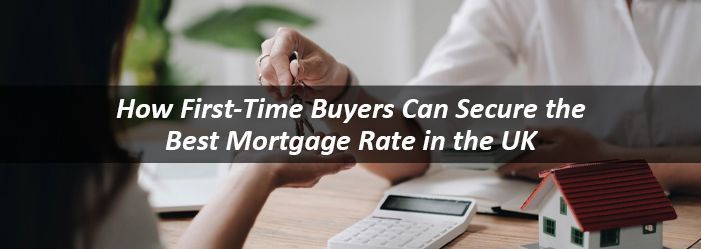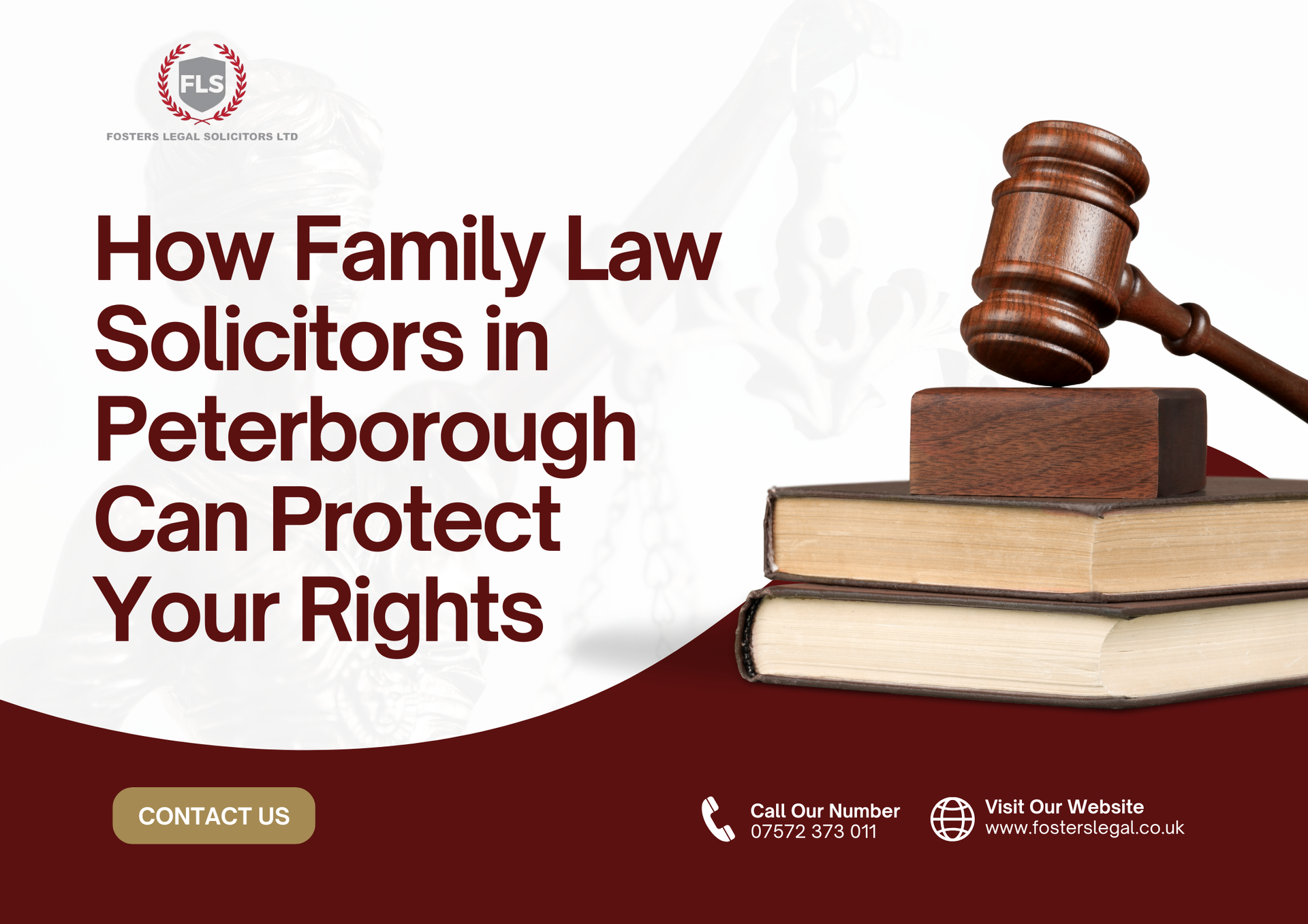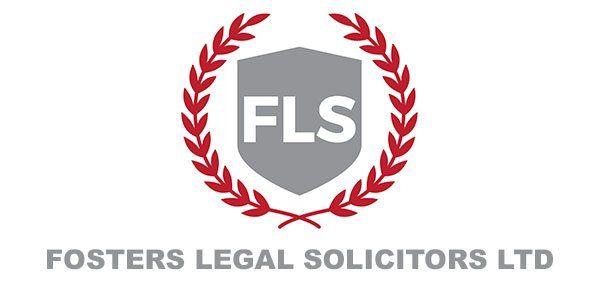How First-Time Buyers Can Secure the Best Mortgage Rate in the UK
How First-Time Buyers Can Secure the Best Mortgage Rate in the UK

Purchasing your first house is an incredible experience. But the other side is exhausting too. Between choosing lenders, navigating endless paperwork, and figuring out interest rates, it’s easy to feel lost before beginning. And with so many mortgage types out there, how do you know which one truly suits your budget and plans?
If you’ve been searching for the first time buyer best mortgage rate in the UK, but every answer takes you toward more confusion. That’s why this guide exists.
In this blog, we’ll break things down clearly. You’ll learn what each mortgage type means, how to compare your options smartly, and how a good solicitor (like Foster Legal) can protect your money and peace of mind. Think of it as a friendly walkthrough that answers the questions no one else is explaining properly. Let’s help you move forward with confidence, because the right mortgage decision today can shape your financial freedom tomorrow.
Let me know when you're ready for the next section!?
Who Qualifies as a First-Time Buyer
Understanding whether you’re officially a
first-time buyer isn’t just a technical box to tick; it directly affects your chances of getting the first time buyer best mortgage rate in the UK, lower deposits, and even tax relief like stamp duty exemption

You Are a First-Time Buyer If…
Neither in the UK nor anywhere else in the world have you ever held a residential property in your name. This means no previous purchases, inheritances, or joint ownerships tied to your name.
Real-life example: If you’ve only ever rented or lived with family, and this is your first purchase, you’re in the clear.
You Aren’t a First-Time Buyer If…
Many people
think they qualify, but here are some common scenarios where you don’t:
1. You’re Buying with Someone Who Owns Property
Even if
you’ve never owned, buying with a partner or friend who has means
you both lose first-time buyer benefits.
2. You’ve Inherited a Home
If a property was passed to you, even one you never lived in or sold immediately, you’re no longer a first-time buyer.
3. You’re Buying with a Parent or Guardian
If your parent already owns property and is listed on the mortgage or deed,
you no longer qualify as a first-time buyer, even if you're the one living there.
Tip: If you're unsure, a
trusted legal service can help assess your eligibility and prevent mistakes that might cost you in rates or fees.
Now that you know where you stand, let’s explore the different types of mortgage available and which one might make sense for your situation. From shared ownership to offset mortgages, we’re breaking it all down in plain English.
Types of Mortgage Options for First-Time Buyers
Finding the right type of mortgage isn’t just about chasing the lowest rate; it’s about knowing which type truly fits your life and financial comfort. Many first-time buyers get confused by the jargon, but once you break it down, the differences are easier to grasp than they seem.
Let’s walk through the most common mortgage options in the UK, explained in plain English with real-life relevance, so you can decide what works for you.
1. Shared Ownership Mortgage

You can purchase a portion of a property—usually between 25% and 75%—and utilise the remaining amount to cover rent using a shared ownership mortgage. If you want to move up the real estate ladder but have a little deposit, this is the best option.
- Best for: Buyers in higher-priced towns like Stevenage or Watford, where full ownership might feel out of reach.
- Example: Emily, a nurse in Watford, used shared ownership to buy 40% of a £280,000 flat. Her deposit was just £5,600 and she still lives in the home today
2. Family Springboard Mortgage
This option allows a family member to lock their savings into a linked account as a form of deposit security. You don’t need to save a large deposit yourself, and the money is returned to your family after a few years, provided payments are made on time.
- Best for: Buyers with supportive parents or relatives but limited personal savings.
- Tip: This mortgage often unlocks better rates than traditional low-deposit loans, helping you borrow more for less.
3. Fixed Rate Mortgage
For a certain amount of time, typically two, three, or five years, a fixed-rate mortgage locks in your interest rate. Regardless of the state of the overall economy, your monthly payments remain constant.
- Best for: Buyers who want stability and clear monthly budgeting.
- Example: Sophie from Peterborough chose a 5-year fixed rate to avoid any surprises while adjusting to her new bills. Her rate stayed at 5.2% even when the base rate climbed.
4. Tracker Mortgage
Tracker mortgages use the base rate set by the Bank of England plus a tiny buffer that is determined by the lender. Your monthly payments may rise or fall depending on economic changes.
- Best for: Buyers who expect interest rates to drop or want flexibility without early repayment charges.
- Heads-up: These mortgages carry risk if base rates rise suddenly, so make sure your budget can stretch.
5. Standard Variable Rate (SVR) Mortgage
This is the rate your lender moves you to after your initial deal ends. It’s usually higher and can change without notice.
- Best for: Short-term buyers or those planning to remortgage soon.
Let's face it: Spending too much time on SVR can stealthily drain your wallet.
6. Discount Rate Mortgage

This option offers a discount off the lender’s SVR for a set time, say, 2 years. It can be cheaper at first, but the rate still moves if the SVR changes.
- Best for: Those who want low initial payments but can handle some fluctuation.
- Example: A couple buying their first home in Stevenage saved £130 a month for the first two years before switching to a fixed deal.
7. Capped Rate Mortgage
Think of this as a variable mortgage with a safety net. Your interest rate can rise or fall, but never go above a set limit (the "cap").
- Best for: Buyers who want the chance to benefit from falling rates, but with protection from big spikes.
- Bonus: Capped deals are rare but worth asking about, especially if you’re working with a solicitor in Watford who understands which lenders still offer them.
8. Offset Mortgage
With an offset mortgage, your savings are linked to your mortgage account. Instead of earning interest, the savings reduce how much interest you pay on your loan.
- Best for: Buyers who have savings but don’t want to use them as a full deposit.
- Real story: Laura from Peterborough kept £10,000 in a linked offset account and saved over £90 per month in interest without touching her savings.
Now that you’ve explored the types of mortgages available, the next question is:
How do you get the best deal? In the next section, we’ll break down smart steps you can take today, from improving your credit file to why talking to a local solicitor (like Foster Legal) can give you the edge in securing the first-time buyer's best mortgage rate in the UK
How First-Time Buyers Can Get the Best Mortgage Rate in the UK
Lenders don’t hand out their best offers by default. You need to know what impacts your rate and take small but smart steps to improve it. Below are real actions that make a real difference.

1. Always Compare More Than One Lender
Never go with the first offer that lands in your inbox. Different lenders give different rates, even for the same borrower. A small change in interest can mean thousands saved over the years.
2. Talk to a Solicitor or Mortgage Advisor Early
A good
mortgage solicitor isn’t just there for paperwork. They flag hidden costs, break down complex terms, and help you avoid deals that look good upfront but sting later.
If you're in or around Watford, speaking with a legal aid solicitor near you, like Foster Legal, can uncover options tailored to your exact situation, especially if you’re navigating joint ownership, government schemes, or unusual deposit sources.
3. Check Your Credit Report and Fix Small Errors
Lenders decide your rate based on your credit file. A missed payment from years ago, or even a wrong address, could be holding you back.
- Actionable Tip: Use free tools like ClearScore or Experian to review your report.
4. Lower Your Debt-to-Income Ratio
Lenders want to see that your income comfortably covers your current debts. The more credit cards and loans you’re juggling, the riskier you look.
- What to do: Pay down high-interest debts first. Even clearing one card could shift the scales in your favour.
5. Don’t Just Look at the Rate, Check the Fine Print
Actionable tip: Ask these five things before signing:
- What's the total cost over the fixed period?
- Can I overpay?
- What are the product and legal fees?
- Is there flexibility if my income changes?
- What happens if I remortgage early?
In the next section, you’ll see why working with the right legal team isn’t just helpful—it’s essential, and how
Foster Legal makes that process smoother, clearer, and safer
Why a Good Solicitor is Crucial

Mortgages involve more than just numbers; they come with fine print and potential pitfalls that first-time buyers often overlook. That's where a good solicitor, like those at Foster Legal, becomes essential. We don’t rush you; instead, we simplify the process to ensure you understand every step.
Foster Legal provides clear, tailored guidance and works efficiently with mortgage brokers, estate agents, and lenders to keep your timeline on track. Our goal is to help you move into your new home with minimal delays and surprises.
If you have questions, we’re just a call away, offering real support without confusing portals or delayed responses.
Need Help Beyond Mortgages?
While first-time buyer support is a big part of what we do, Foster Legal also helps with:
- Property sales and purchases
- Remortgaging and equity transfers
- Wills and probate
- Business contracts and disputes - Employment law solicitor
- Family law and separation agreements - Family law solicitor
Whether you're moving home, planning your estate, or sorting out a legal issue, our door is open. And our advice is always straight, honest, and focused on your best outcome.
Final Word
Buying your first home is a big moment, and the mortgage you choose can shape your financial journey for years to come. Throughout this blog, we’ve unpacked what it means to be a first-time buyer, explored the different mortgage options available, shared how to improve your chances of getting the first time buyer best mortgage rate in the UK, and explained why having the right solicitor matters more than you might think.
With the right advice, clear comparisons, and a solicitor who truly has your back, you can avoid costly mistakes and move forward with clarity. That’s exactly what we do at Foster Legal. Whether you're buying in Stevenage, Peterborough, or Watford, we’re here to guide you from offer to ownership with straightforward support and legal know-how.
Ready to take the first step toward a smarter mortgage decision?
Book your consultation with Foster Legal today, and let’s help you secure the best start to your homeownership journey
Frequently Asked Questions
What is the mortgage rate for first-time buyers in the UK?
Rates typically range between 4.5% and 6.5%, depending on your deposit, credit score, and lender—but working with a solicitor can help you find the best deal
What is the best mortgage for a first-time home buyer?
There’s no one-size-fits-all—fixed-rate and shared ownership mortgages are popular, but the best choice depends on your income, deposit, and long-term plans
What is the average mortgage term for first-time buyers in the UK?
Most first-time buyers choose a term between 25 to 35 years, depending on affordability and monthly repayment comfort
What is a first-time buyer mortgage in the UK?
It’s a mortgage deal designed specifically for those who’ve never owned property, often with lower deposit requirements or government support
What is the best loan for first timers?
Options like family springboard, offset, or fixed-rate mortgages can be ideal—but the best loan is the one that suits your financial goals and lifestyle












